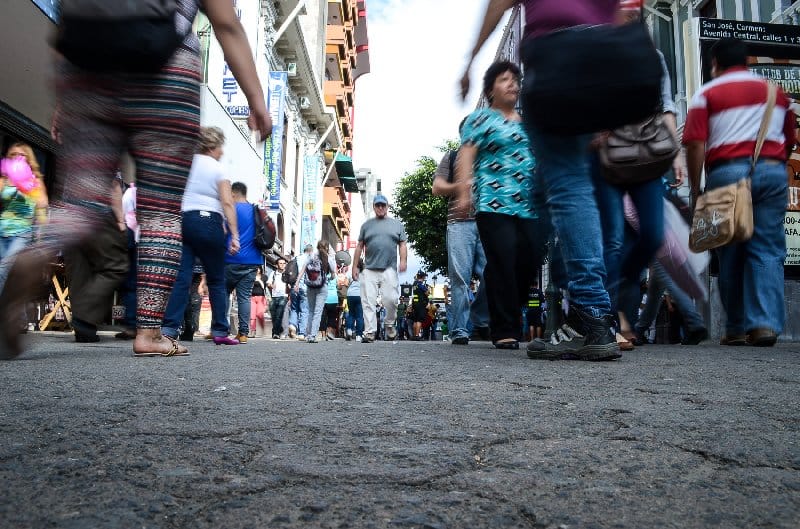What’s the best way to respond to street harassment in Costa Rica? Many people, hearing catcalls that make them uncomfortable or even scarier situations, have grappled with this issue, which can be especially complicated if you are a visitor or if your language skills are limited. Is it best to ignore, confront, or run for cover? And if you witness someone else being harassed, what can you do without making the situation worse?
Alejandra Arguedas of the initiative Acción Respeto – Costa Rica, which raises awareness and organizes training to combat street harassment, offered some tips from the Hollaback! Movement in a recent episode of our podcast, The Tico Times Dispatch. To make it easier to remember in those stressful moments when you’re hearing unwanted commentary about your body, the five strategies are known as the Five Ds. Designed for bystanders who witness harassment and want to find a way to step in, the strategies can also be useful for the victims themselves.
Here’s our summary of some of the points Arguedas raised in our podcast and that Hollaback! recommends on its Bystander Intervention page. Read the full Hollaback guide here.
Direct
Whether you’re receiving or witnessing harassment, consider responding with a short, to-the-point message. You’re aiming to shut the harassment down, not to start a conversation or engage: No. Stop (pare). Use this strategy with caution; sometimes, the strategies below will be safer options.
Distract
If you’re the victim, try to find help and protection in a subtle way by engaging with another passerby – ask someone for the time, ask someone for directions to the Teatro Nacional or the Restaurante so-and-so. This allows you to start up a conversation with another person without directly addressing the harassment.
If you’re the bystander, you can find an equally inane reason to start talking to the victim. “Sorry, do you know where the Panadería Solano is?” “Hey, didn’t we go to high school together?” You might even accidentally-on-purpose spill your beverage or create another distraction.
Delegate
Seek support from police, the manager of the business you’re in, the bus driver, or whatever authorities control the space you’re inhabiting. If necessary, call 911 as you seek a safe space. If you are witnessing harassment and are with a friend, you might have the friend create a distraction to help ensure the victim’s safety while you find an authority.
Delay
This strategy applies to bystanders more than victims: often, a moment of harassment ends quickly, but you can still make a difference by asking the person if he or she is ok, help connect the person with resources, or offer to accompany the victim to his or her destination.
Document
You’ll need proof if you do choose to communicate your experience to authorities, so document through photos, videos or audio if at all possible. Again, do not do this at the expense of your safety, and if you’re a bystander, never share or publish any documentation of harassment without the victim’s permission. (You can find more information on how to file an official complaint in our story “How to file a criminal complaint in Costa Rica.”)
Learn more about street harassment in Costa Rica in the latest episode of our podcast, The Tico Times Dispatch:
The Tico Times Dispatch: Figuring out and fighting street harassment in Costa Rica






